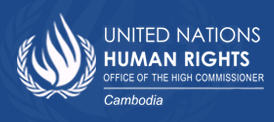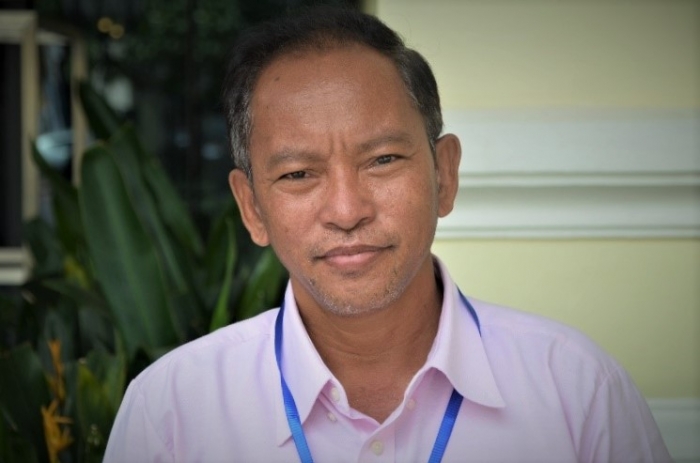

Every time Chanthat Mam hears the ring of a bell, it takes him back 40 years.
“Whenever I hear the bell from a school or pagoda, I feel like I should stand up. I remember the Khmer Rouge. I see the picture.”
But 44 years after facing torture, starvation and the loss of countless loved ones at the hands of the brutal regime, he appeals to the Buddhist value of Akhorsekam – letting go of what once hurt you.
“If we keep the sadness and we seek revenge, we will always have negativity in our lives,” he says.
However, he didn’t always feel this way.
“When I was young I tried to find the people who tortured me. I was very angry because they tortured me and killed my family. Now I understand that if a dog bites you, we do not use our mouth to bite the dog back. My heart is very calm.”
The 55-year-old survivor had his childhood shattered within the blink of an eye. At the age of 10, his school days became a fight for survival when he and his family were pulled from their comfortable Kompong Chhnang lives and thrust into a tiny cottage in the countryside.
“I remember an announcement over the radio about bombs dropping on the country. Afterwards, a group of Khmer Rouge soldiers in black uniforms told us to go out [of the house] and follow them. We had to follow the orders, otherwise they would kill us.”
Within the first five months, he says he had to witness the loss of most of his family members.
“They started to ban food inside the area. I remember we had to eat tree root as our meal. [As a result] my sister, my aunt and my grandfather died.”
Along with them, nearly 2 million people are thought to have lost their lives during the Khmer Rouge Regime reign from 1975 to 1979. Practices of starvation, torture, execution and forced labour were rampant during this period. The memory of torture, Mam says, is one that will always live with him.
“It’s a memory that always comes back. I thought I was going to die. All the people I saw who were [taken away to the detention center] never came back.”
Mam recalls a time he attempted to alleviate his hunger, sneaking away from a group of boys he was with to eat a tamarind he spotted on the ground. When he was caught, military officers accused him of being a spy and took him to a pole where they tied him up for 24 hours. His skin swelled and he shouted in pain for help, he says; no one came.
“They left me alone there. I didn’t know where I was. At 3pm I heard I was in the detention center – the place where they tortured and killed people.”
During this part of his life, Mam got seriously sick several times; on one occasion, he was transferred to a regime hospital: an empty, broken pagoda used to deliver medical aid. There, he says, he found himself the victim of a tragic coincidence.
“The day I arrived my father died as well. People next to me told me my father had died there, in the same bed where I was sleeping. [They also told me] his body was buried outside.”
In recent years, Mam has been advocating for justice alongside a group of survivors who participated as civil parties during the trials of the Extraordinary Chambers in the Courts of Cambodia (ECCC); a court to try Khmer Rouge leaders.
During the trial proceedings, UN Human Rights Cambodia worked to increase public knowledge of trials; fostering debates among lawyers, prosecutors and judges and disseminating jurisprudence and legal practices to professionals to ensure an indelible imprint on national law and practices, for example through the development and dissemination of a Cambodian Code of Criminal Procedure Annotated with ECCC and Select International Jurisprudence.
The UN Human Rights approach to achieving justice after devastating conflict, known as ‘transitional justice’, emphasises the use of both judicial and non-judicial mechanisms – including developing national capacities to strengthen rule of law, facilitating truth-telling initiatives and reforming history education.
Mam still makes twice-yearly visits to the old pagoda where his father died – even though he doesn’t know the final resting place of all of his family yet.
“I want to go where my grandfather died. I still [have not] found it.”
But he has a dream – and hope. He wants to work with survivors to document and convey their experiences to the younger generation. He says this dark period of history can teach people the harm that comes from unchecked desire.
“[The lesson of the Khmer Rouge is] not to be greedy. When you want power you are capable of everything.”
Those on the wrong side of history, he says, should also feel some hope.
“Khmer Rouge leaders are dead or old. [Those who are still alive should] forget the past and start doing good things.”